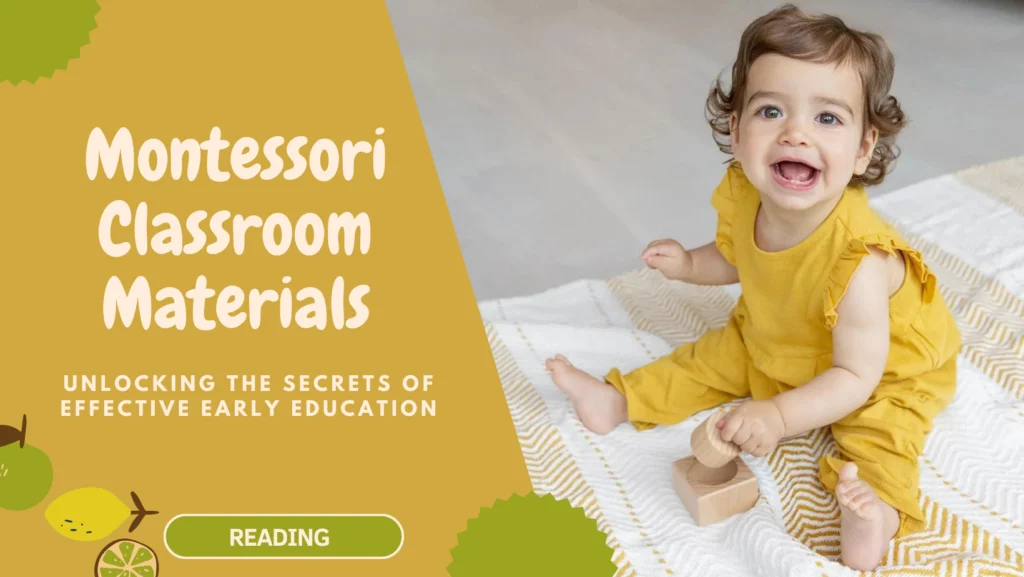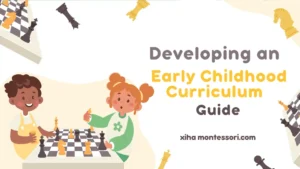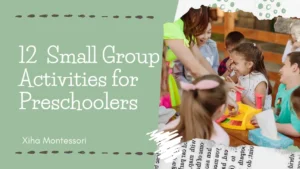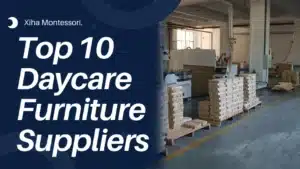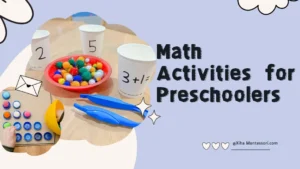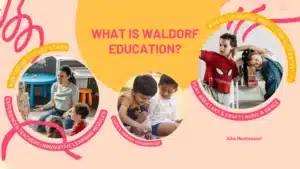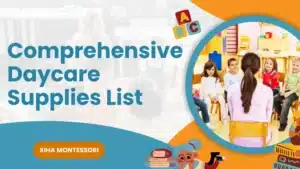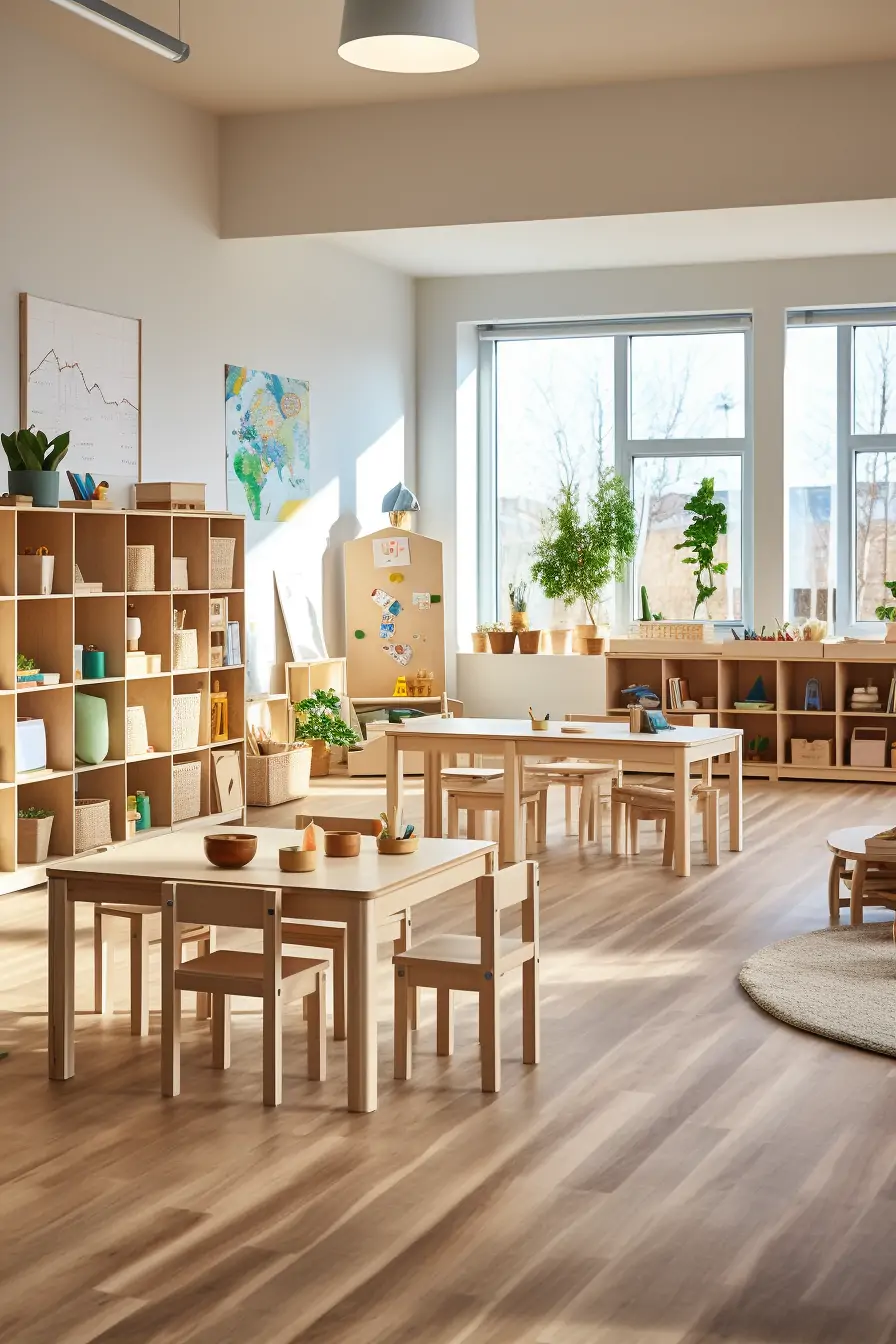Venture into the Montessori classroom and enter a world meticulously crafted for exploration and growth. Central to this environment are the Montessori classroom materials, designed to ignite a child’s natural curiosity and foster a deep love for learning. These materials, each with a specific purpose, are more than just educational tools; they are the essence of the Montessori philosophy, facilitating self-directed learning and sensory engagement. Venture into the Montessori classroom and enter a world meticulously crafted for exploration and growth. Central to this environment are the Montessori classroom materials, designed to ignite a child’s natural curiosity and foster a deep love for learning.
Within the walls of a Montessori classroom, these materials become the instruments of discovery, guiding children through a self-paced education. Each element, from tactile sensory blocks to intricately designed language materials, is tailored to support the child’s holistic development. The Montessori classroom materials encourage interactive learning, allowing children to explore concepts through touch, movement, and observation, thus cementing their understanding of the world around them.
Embarking on this exploration of Montessori classroom materials reveals their integral role in cultivating a practical early educational experience. They are not just aids for teaching but vital components that transform the classroom into a dynamic learning environment. Through these materials, children develop critical thinking, independence, and a joyful pursuit of knowledge.
What is the Montessori Method?
The Montessori Method is an innovative educational approach founded by Dr. Maria Montessori, emphasizing natural development and the importance of adapting the learning environment to fit the needs of children. It’s distinguished by its focus on individualized learning, allowing children to engage in self-directed activities at their own pace. This method supports the idea that learning should occur in a nurturing environment filled with developmentally appropriate materials that provide experiences contributing to the growth of self-motivated, independent learners.
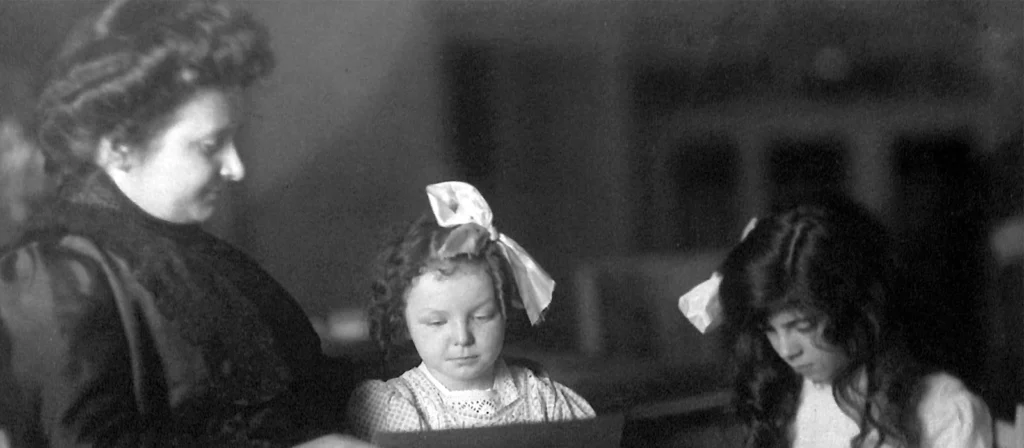
Classroom Materials’ Role in Montessori Education
Montessori classroom materials are not merely tools but the very bedrock of the Montessori method. They create a structured yet flexible environment where children can engage with concepts at their own pace. The design of these materials is intentional, promoting ease of use and accessibility for children, thus fostering a sense of accomplishment and self-reliance as they navigate their learning path.
Enhancing Sensory and Cognitive Skills: Tailored for Development
Each piece of Montessori material is meticulously crafted to aid in developing specific sensory and cognitive skills. For example, sensory materials like color gradation blocks and sound cylinders enhance visual and auditory discrimination. These tools make abstract concepts tangible, facilitating concrete understanding and long-term retention of complex ideas, which is crucial for cognitive development and academic success.
Self-Directed Learning: Fostering Independence
In the Montessori classroom, materials are laid out to invite interaction and exploration, encouraging children to select tasks that resonate with their interests and developmental stage. This self-directed learning promotes independence, critical thinking, and problem-solving skills. As children work with materials like bead chains or golden beads, they learn mathematical concepts and develop an ability to manage their learning process, set goals, and pursue tasks with purpose and concentration.
Interactive and Engaging: Making Learning Joyful
Montessori classroom materials are designed to captivate and stimulate young learners, making education a joyful and engaging experience. Whether tracing sandpaper letters to learn phonetics or assembling a puzzle map to understand geography, these materials are interactive and multisensory. They encourage children to touch, manipulate, and experiment, transforming the learning process into an exciting adventure that stimulates curiosity and nurtures a lifelong love of discovery.
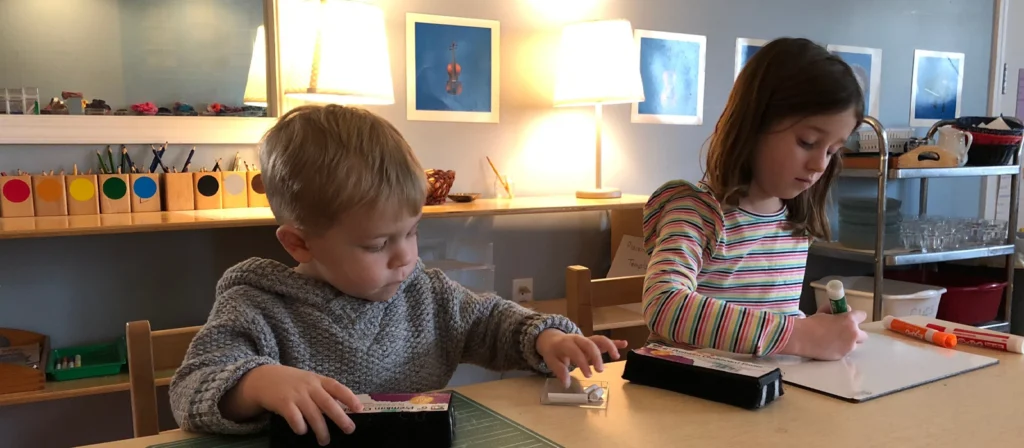
The Importance of Montessori Classroom Materials
The significance of Montessori classroom materials extends far beyond their physical presence. These materials are integral to the Montessori method as the linchpin connecting theoretical learning with practical application. They provide a tangible context through which children can explore, understand, and internalize abstract concepts, thus playing a crucial role in shaping the learning environment. This hands-on approach not only aids in cognitive development but also supports emotional and social growth, ensuring a well-rounded educational experience.
Benefits of Montessori Materials in Early Education

Cognitive Growth Through Hands-On Learning
Montessori classroom materials enhance cognitive development by providing sensory experiences that ground abstract concepts into concrete learning. This hands-on approach facilitates a deeper understanding and retention of knowledge, establishing a robust foundation for future academic endeavors.
Enhancing Motor Skills and Coordination
These materials aid in developing fine motor skills and coordination. Engaging in activities that require precision, such as using tweezers for transferring or practicing with buttoning frames, refines hand-eye coordination, setting the stage for academic skills like writing.
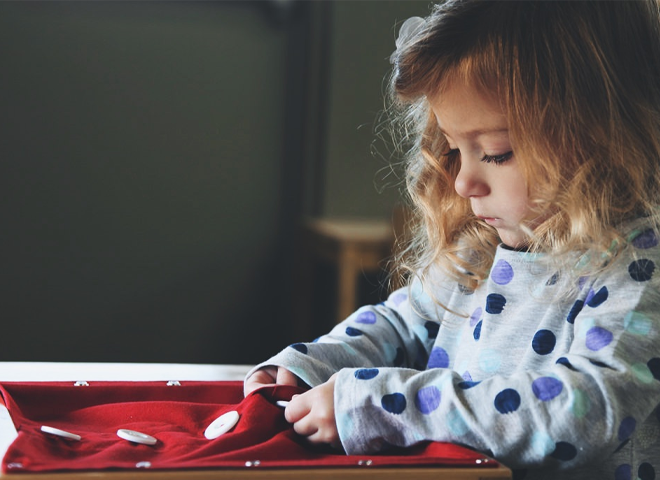

Fostering Problem-Solving and Critical Thinking
Montessori classroom materials are instrumental in cultivating problem-solving abilities and critical thinking. Children learn to approach challenges independently, fostering a sense of confidence and self-reliance. This self-directed problem-solving process nurtures resilient learners equipped to tackle future complexities.
Promoting Social and Emotional Development
Through collaborative activities and shared resources, Montessori classroom materials contribute to social and emotional growth. They encourage children to work together, respect differences, and develop empathy and communication skills for successful interpersonal relationships and community engagement.
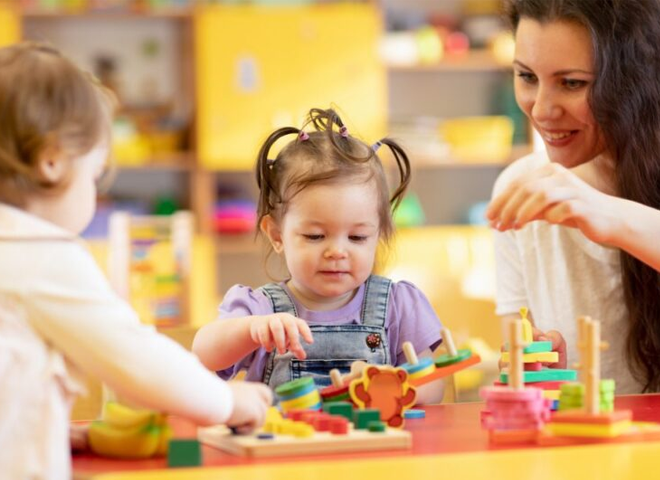
Montessori Classroom Materials for Sensorial Development
- Refining Sensory Perception: Montessori classroom materials tailored for sensorial development are designed to refine children’s sensory perception and awareness. For example, the color tablets help children differentiate hues and shades, enhancing visual discrimination, while the sound boxes train auditory skills by distinguishing between different volumes and pitches.
- Building Conceptual Understanding: These materials also aid in building a foundational understanding of concepts like size, shape, and texture. The pink tower, a set of progressively sized cubes, teaches concepts of dimension and size, allowing children to experience significant and small physical representations. Similarly, geometric solids introduce children to various shapes and forms, fostering spatial awareness.
- Encouraging Exploration and Discovery: Sensorial materials in a Montessori classroom are inherently designed to encourage exploration and discovery. The tactile materials, like fabric matching sets or rough and smooth boards, engage children’s sense of touch, promoting hands-on learning and inquisitive exploration of their environment.
- Supporting Cognitive and Language Development: These sensory experiences are closely tied to cognitive and language development. As children interact with materials like botany puzzles or smell bottles, they refine their sensory skills, vocabulary, and conceptual knowledge, discussing and naming their experiences and observations.
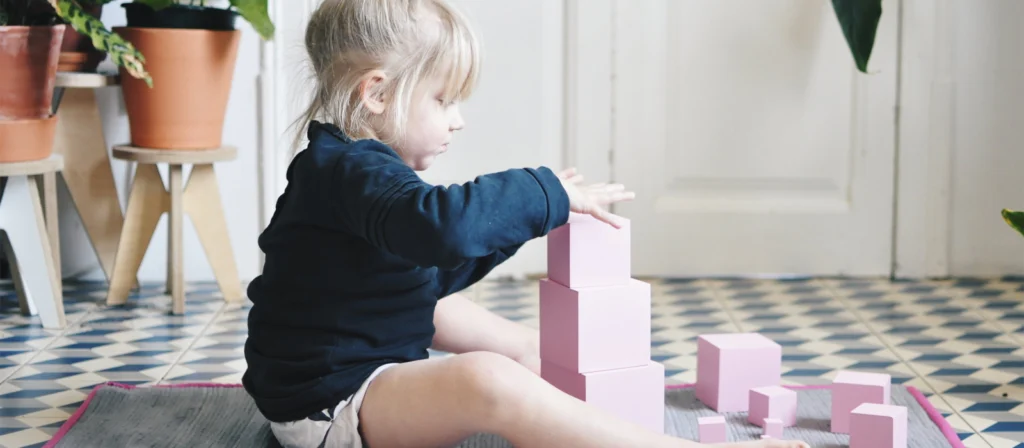
Montessori Classroom Materials for Practical Life Activities
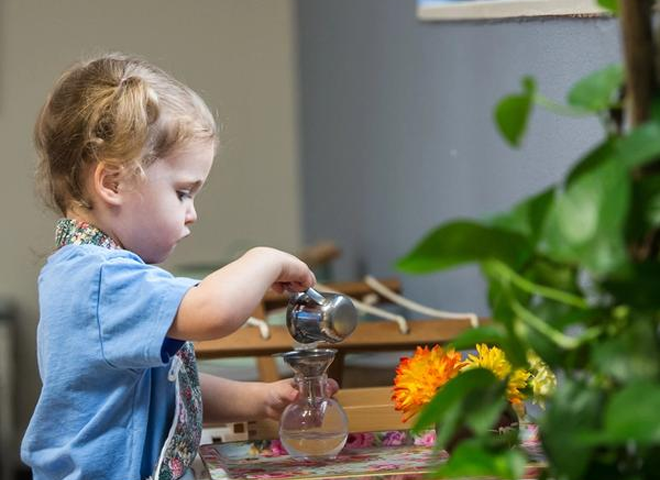
Developing Daily Living Skills
Montessori classroom materials for practical life activities are designed to teach children essential daily living skills. For instance, pouring activities using water or grains help children refine their pouring skills, promoting precision and control. Dressing frames, another classic Montessori material, allow children to practice buttoning, zipping, and tying, fostering independence in dressing themselves.
Enhancing Fine Motor Control
These materials also focus on enhancing fine motor control, pivotal for writing and other academic tasks. Activities like using tweezers to transfer small objects, such as beads, from one container to another improve hand-eye coordination and prepare the child’s hand muscles for writing and other delicate tasks.
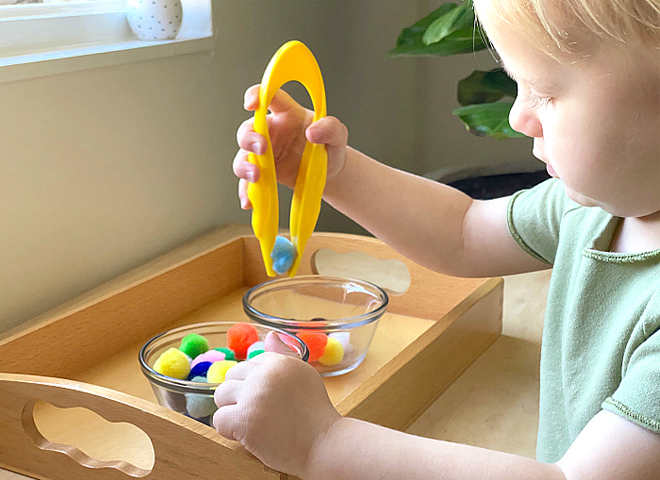
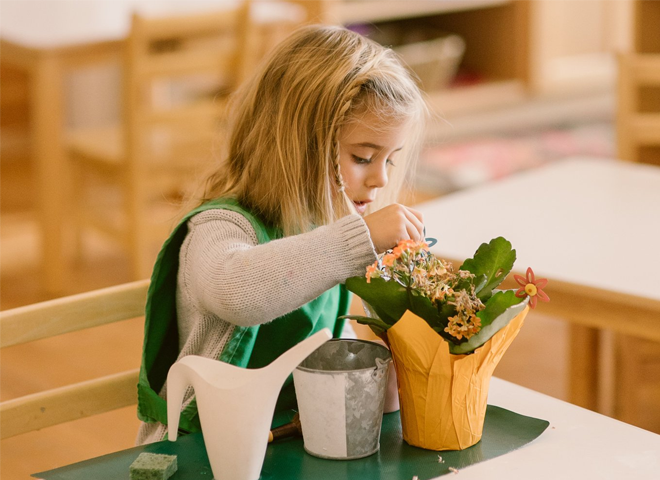
Encouraging Care for the Environment
Practical life activities in Montessori education include caring for the environment teaching children responsibility and respect for their surroundings. Tools like child-sized brooms, mops, and gardening sets enable children to actively participate in cleaning and maintaining their classroom and garden, instilling a sense of responsibility and stewardship.
Fostering Social Skills and Independence
Through these practical life exercises, children also develop social skills and independence. Group activities, such as preparing a shared snack or collaborative cleaning tasks, require children to work together, communicate effectively, and support one another, laying the groundwork for teamwork and community living.

Montessori Classroom Materials for Language Development
- Introduction to Alphabet and Sounds: Montessori classroom materials for language development begin with introducing the alphabet and sounds. Sandpaper letters are a prime example, allowing children to trace each letter with their fingers, combining tactile sensation with visual recognition. This method aids in embedding each letter’s sounds, fostering an early phonetic understanding.
- Building Words and Sentences: As children progress, movable alphabets become integral, enabling them to form words and sentences. This hands-on approach allows learners to physically manipulate letters to construct words, enhancing their grasp of language structure and syntax. It’s a dynamic way to explore language, encouraging independent learning and creative thought.
- Enhancing Reading Skills: These Montessori classroom materials facilitate the transition from letter recognition to reading. Children develop reading comprehension skills through graded readers and matching word-to-picture exercises. This step-by-step progression in Montessori language materials aids in building confidence and fluency in reading.
- Fostering Creative Expression: Lastly, the Montessori approach to language development nurtures creative expression. Storytelling materials, such as sequence cards and story cubes, inspire children to create narratives, enhancing their ability to communicate thoughts and ideas effectively. This not only improves language skills but also stimulates imagination and creativity.
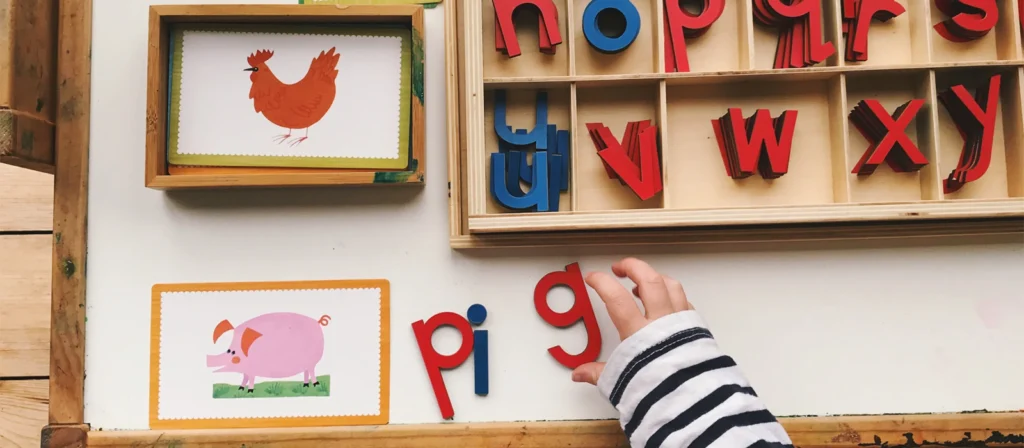
Math Development
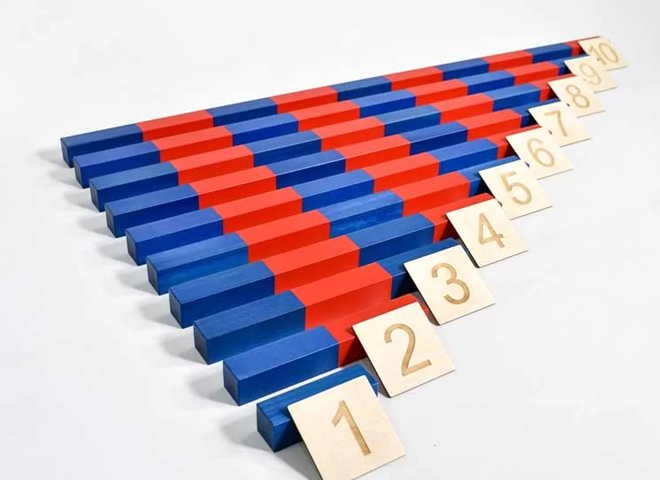
Materials like number rods and sandpaper numbers help young learners understand the basics of counting and the physical quantity each number represents.

As children advance, Montessori math materials like the bead chains and the golden bead material allow them to explore addition, subtraction, multiplication, and division in a tactile and visual way.

Puzzles and geometric boards challenge students to think critically and logically, enhancing their problem-solving and analytical skills. These activities encourage children to engage deeply with mathematical concepts.

Tools like fraction circles and algebraic materials teach specific mathematical concepts and promote logical thinking and reasoning, essential skills for advanced mathematical learning and everyday problem-solving.
Montessori Classroom Materials for Cultural Studies

Exploring Geography and History
Montessori classroom materials for cultural studies introduce children to geography and history, helping them comprehend the vastness and diversity of the world. Globes and continent maps provide a tangible sense of Earth’s geography, while timelines and historical figures bring past events to life, making abstract concepts more accessible and engaging.
Understanding Science and Ecosystems
In science, Montessori cultural materials like landform models and botanical charts allow children to explore natural phenomena and diverse ecosystems. These tools help students understand environmental processes and various life forms, fostering a deeper appreciation and curiosity for the natural world.


Celebrating Cultural Diversity
Cultural studies in Montessori education also focus on the diversity of human cultures. Artifacts, traditional clothing, and cultural celebration materials enable children to explore the customs, languages, and lifestyles of people from various parts of the world. This exposure cultivates an understanding and respect for cultural differences, promoting global awareness and empathy.
Choosing and Using Montessori Classroom Materials Effectively
Selecting and utilizing Montessori classroom materials effectively is crucial for maximizing their educational experience. The process involves understanding the developmental stages and interests of the children and ensuring that the materials are age-appropriate and engaging. Teachers and parents should focus on quality, choosing durable materials that accurately reflect Montessori principles and facilitate hands-on, self-directed learning. Proper training in the Montessori method can also enhance the effectiveness of these materials, as it equips adults with the knowledge to guide children in using them constructively. Teachers can create an enriched learning environment that fosters children’s natural curiosity and love for learning by thoughtfully choosing and skillfully using Montessori classroom materials.
| Age Group | Montessori Materials |
| 0-3 Months | Visual Mobiles- Tactile Mats |
| 4-6 Months | Grasping Toys- Tummy Time Mirrors |
| 7-9 Months | Object Permanence Boxes- Soft Books |
| 10-12 Months | Stacking Toys- Crawl-through Tunnels |
| 1-2 Years | Push and Pull Toys- Simple Puzzles- Basic Shape Sorters |
| 2-3 Years | Dressing Frames- Simple Art Supplies (crayons, paper)- Counting Materials (like peg boards) |
Using Montessori Materials in the Traditional Classroom
Incorporating Montessori classroom materials into a traditional classroom setting can significantly enhance the educational experience, blending the best of both worlds. With their self-directed and tactile learning approach, these materials offer a unique opportunity for children in a conventional setting to engage deeply with concepts at their own pace. Utilizing Montessori classroom materials in this context encourages independent exploration and critical thinking, fostering a learning environment that values student choice and hands-on experiences. This integration can lead to a more dynamic and inclusive classroom where every child’s learning needs and styles are addressed.
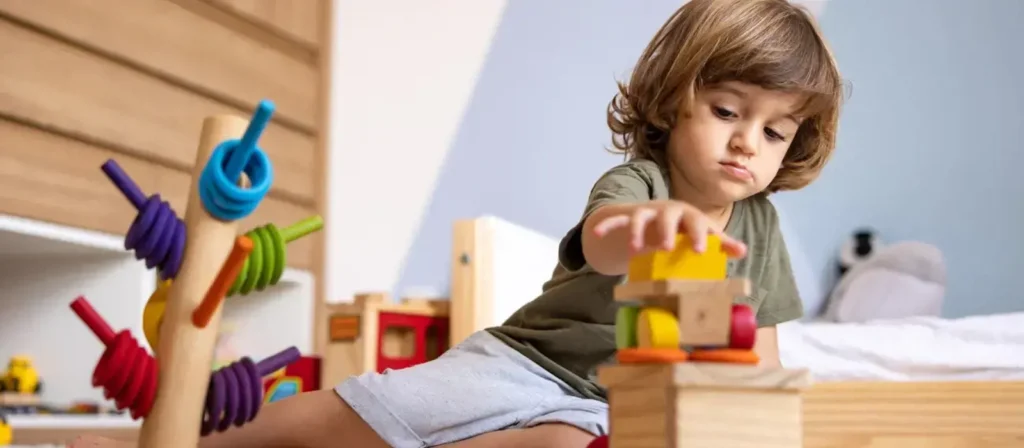
Where to find Montessori Classroom Materials
Montessori classroom materials can be located through various sources, including specialized educational supply stores, online platforms, and Montessori-specific retailers. These vendors offer various products tailored to the Montessori curriculum, from essential sensory tools to advanced learning kits. When searching for these materials, it’s essential to seek out reputable suppliers who provide high-quality, durable items that align with Montessori principles, ensuring the materials are authentic and effective for educational use.
At TOP Montessori, we have been pioneering in preschool furniture and toys for over 20 years, TOP Montessoris offers innovative, high-quality preschool solutions globally, focusing on creating inspiring learning environments.
Highlights:
Greate Our Team Craft Work: Our skilled team designs children’s furniture precisely and carefully.
20 Years Of Experience: We have a rich history of crafting safe, durable furniture for children.
More Detailing Products Craft: Our furniture features child-safe materials and customizable designs.
Secure Shipping Products: We offer efficient, nationwide delivery, focusing on safety and timeliness.
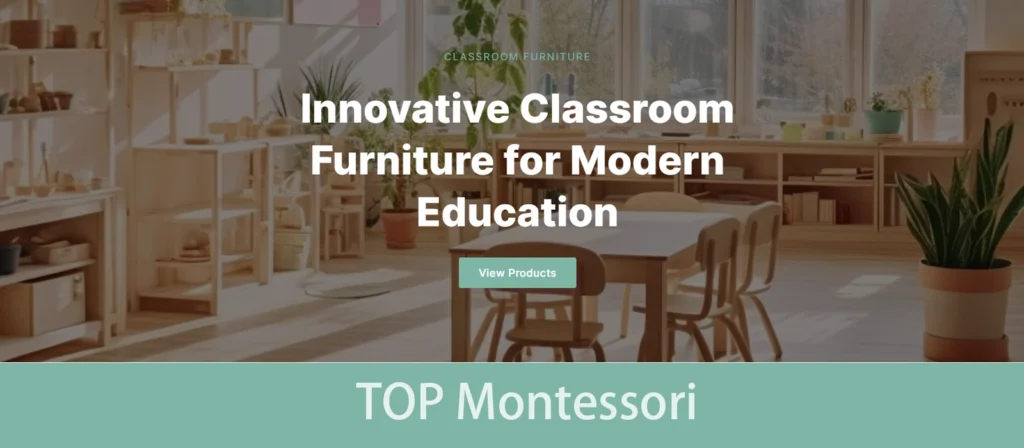
At Xiha Montessori, we are dedicated to providing exceptional solutions for your educational needs. With a commitment to quality, innovation, and personalized service, we are the most trusted partner for preschools worldwide. From our extensive product range to our expertise in classroom design, we are driven by a passion for empowering young minds to thrive. Choose Xiha Montessori and experience the difference in educational excellence.
20 Years of Experience in Montessori Furniture Production Service
- At Xiha Montessori, we are your trusted one-stop supplier for all preschool furniture needs. With extensive experience and a commitment to exceptional service, we offer tailored solutions to create inspiring learning environments.
- Our high-quality furniture is designed specifically for early childhood education, backed by our expertise in the industry. From consultation to installation, our team of professionals provides personalized attention and prompt response to ensure your complete satisfaction.
- Top-notch furniture, hassle-free experience, and reliable service. Contact us today to discuss your requirements and start building a lasting partnership.
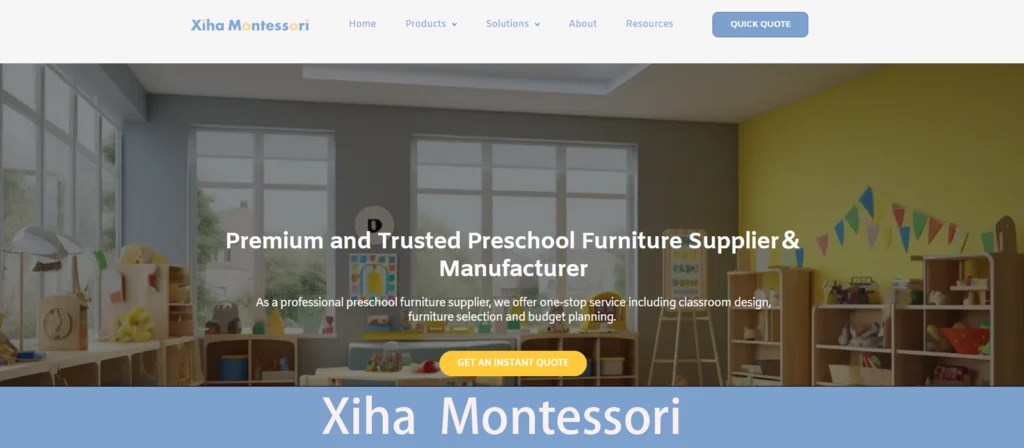
Conclusion: Impact of Montessori Materials on Early Education
The influence of Montessori classroom materials on early education is profound, playing a pivotal role in shaping the developmental journey of young learners. These materials facilitate hands-on, experiential learning and foster a nurturing environment where children can thrive intellectually, socially, and emotionally. The strategic use of Montessori classroom materials in early childhood education cultivates a love for learning, critical thinking skills, and a strong sense of independence, setting the foundation for future academic and personal success.

